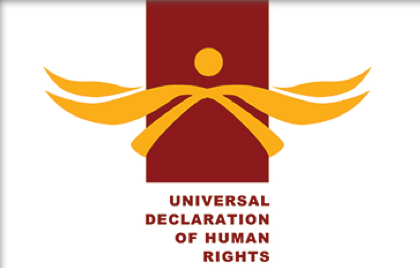case 1: account closure
Cashless banks have no vault and no cash services apart from the ATMs. ATMs in Europe never handle denominations smaller than €20. This means that even when you are closing an account at a cashless bank, the most you can pull out is a multiple of €20 from your balance. The bank expects you to open an account somewhere else first and transfer the remainder to the other account. This is to keep people trapped in the banking system.
It seems to violate article 17 ¶2:
- Everyone has the right to own property alone as well as in association with others.
- No one shall be arbitrarily deprived of his property.
This is not exactly up there with genocide and torture. It’s perhaps the smallest human rights infraction I can think of. But nonetheless, banks should be structured to comply with human rights no matter how trivial, no? It seems like even a cashless bank should (in effect) be required to keep some petty cash on-hand for account closures.
case 2: withdrawal limits
The same question applies for bigger cases. E.g. a bank (cashless or not) may have a daily withdrawal limit; weekly, and monthly too. Perhaps it is fair enough to have a fee or penalty for exceeding their limits, but if I understand correctly the bank has a human rights obligation to allow you to withdraw all your money. At the moment banks with limits simply refuse to execute withrawals that exceed their limits.
case 3: card refusal
ATMs and shops refuse people access to their money for countless arbitrary reasons.
- When a customer’s ID card copy on the bank’s files expires, some banks do not bother to inform the customer or request an updated copy. They just freeze the account. When money is denied, the customer magically presents themselves to the bank to find out why. Cutting off access to funds is the bank’s way of communicating.
- ATMs reject cards for undisclosed reasons. Sometimes a faulty AI bot falsely triggers and claims a transaction looks fraudulent. Sometimes ATMs are discriminating against people based on their origin (locally issued cards get a higher limit than foreign ones, but the ATM does not tell the customer what the limit is or why their transaction is denied).


You don’t have a human right to conversion of your property into a form that’s useful everywhere at any time, though.
When you deposit your money in the bank, you accept some form of limitation in accessing your funds, in exchange for convenience, security, utility and possibly interest.
This is all laid down in a contract, which you agree to.
The bank isn’t depriving you of your property, you agreed to convert your cash into a legally binding right to access cash in the future, granted to you by the bank under certain circumstances.
It’s not one or the other. It’s both at the same time. Consumers are deprived of their property as a consequence of that agreement. The bank in case 1 currently says: to get your €19.99 back, either open another bank account or fuck off (in so many words).
From there, it comes down to whether you can sign away your human rights.
Your human right to $19.99 in the form of cash?
Get over yourself!
I have two words for you: Slippery slope.
Human rights don’t have a reasonability limit. They’re inherent and inalienable. If it were $0.01 the problem would still be the same. A human rights violation is a human rights violation.
If you see a value limit enshrined in the UDHR, feel free to quote it here.
It’s not about the value, dude. You aren’t deprived of your property, you still own that value.
But you don’t have a human right to have it converted into cash at your leisure (and the bank’s effort) whenever you please.
Your argument is like buying gold for $20 and then complaining about human rights violations if the seller doesn’t buy it back for $20 whenever you wish.
If you want it now in cash, paypal it to a friend.
When a consumer opts to close their account, the banking relationship can only be ended when the balance is zero (when neither party owes the other). You seem to be saying the UDHR does not entitle people to end the banking relationship at a time of their choosing, correct? In which case the banking relationship continues until the service fees eat away at the remaining balance, against the will of the customer. This is just another way to separate someone from their property.
Banking customers who open an account in the national currency have a reasonable expectation that the value of their account remain pinned to the value of the national currency. Exchanging that for a precious metal and having an expectation that value not decline would be absurd and I do not see how this analogy makes any sense.
Sure, you don’t have an inherent right to any and all conversions of property to cash, e.g. real estate or shares. However, if a bank says you have xy of “Money” - the “legal tender” money, the “default”, “physucal” form of money, then a service for holding said money cannot withold it from you - that would make it not your money and that would make their service a fraud.
I’d draw exceptions on reasonable grounds - e.g. if a bank doesn’t work, they don’t have to offer a withdrawal service at the counter. Not allowing transfer into legal tender cash (since cash and credit are defined as equivalent) cannot be overly long or convoluted. That’d be depriving you of your property.
The “e-bank” should at least mail the money to you. It’s really not that hard. Ideally they’d partner with a traditional bank to allow such transfers. Or it could be codified as a basic inter-bank service.